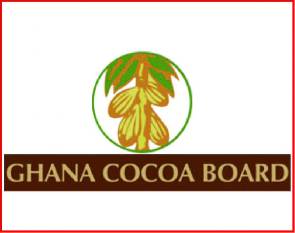After a road-show in London in the United Kingdom, Ghana Cocoa Board (COCOBOD) has received over $1.7billion worth of bids from international banks.
This amount is far and above the $1.3 billion that COCOBOD had targeted to raise to purchase 850,000 metric tonnes of cocoa beans that the country has forecast to produce.
The loans from international banks will used to purchase cocoa beans from licensed buying companies during the 2017/18 season.
Information reaching The Finder indicates that close to 30, including new ones, have signed up to the syndication.
The over $1.7 billion of bids received, so far, means that the loan is already oversubscribed by over $400 million and this amount could further go up as the syndicated loan is still open for more lenders to join until September.
The cocoa industry regulator received $1.8 billion last year for the 2016/17 crop purchases.
However, the new Board of Directors and new management have said the $1.8 billion had been exhausted despite outstanding payments yet to be made.
The newly sworn-in Chairman of COCOBOD, Hackman Owusu-Agyeman, said it is worrying that the funds were all not invested in the cocoa sector to improve this year’s yield saying “there is still cocoa out there that we must buy.
“Obviously, we did not use all the money to buy the cocoa. There are still commitments out there that we must take care of. There was indiscipline in use of the money,” he lamented.
$200million for the rest of season
Consequently, COCOBOD raised $200 million in a bond issued through the Central Bank to cover its operations for the rest of the cocoa season.
COCOBOD has, since the 1992/3 cocoa season, resorted to the international market in raising money for funding the purchase of cocoa beans from farmers through licensed buying companies.
The amount raised has risen from $140million in the maiden attempt to peak at $2 billion in the 2010/11 cocoa season, the period the country grossed over one million metric tonnes of the crop.








